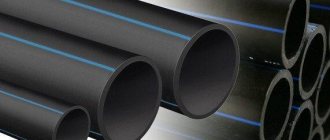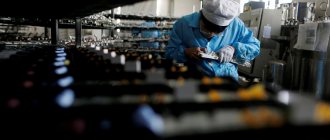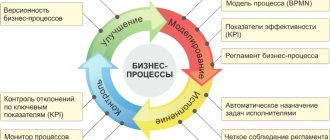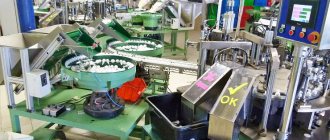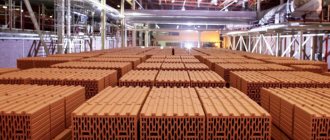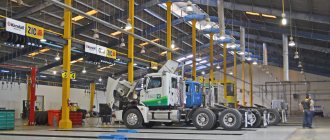The legal form of LLC is considered the most popular among manufacturers. Advantages of such an organization:
- Value for partners and contractors - they cooperate with such companies more often.
- The image and reputation of an LLC turns out to be more advantageous than many individual entrepreneurs.
- With such an enterprise it is easier to attract investment and start a dairy business from scratch.
- An LLC must have an authorized capital, which becomes a guarantee for the investor.
When organizing a business, you should remember that LLC representatives suffer large losses when managers are brought to administrative responsibility.
For example, fines for organizations in accordance with the norms of the Code of Administrative Offenses of the Russian Federation are much higher, which means greater responsibility. LLCs incur losses on their obligations only to the extent of their shares of the authorized capital. Owners of individual entrepreneurs, in case of costs, are liable with all property.
The amount of state duty that will have to be paid when opening an LLC, in accordance with the Tax Code of the Russian Federation, is larger - 4,000 rubles. For an individual entrepreneur, this payment will be 800 rubles.
The number of documents required to register an association is also larger. In addition to applications and receipts for payment of fees, you will need: minutes of the shareholders' meeting and the company's charter, which are drawn up in two copies and registered with the justice authorities.
Quality requirements and permitting documentation
The standards, GOSTs, and specifications for products produced by dairies are high. The quality of raw materials is regulated by GOST 52054-2003 - where milk is considered by this document specifically for processing. However, according to technical conditions, it must be obtained from healthy animals, from areas where no infectious diseases have been detected. To do this, add a certificate from a veterinarian.
In any imported raw material, indicators are determined that are checked chemically or biologically by three certified specialists.
Depending on the data, varieties are identified: first, second, third.
Permissible varietal levels are established by standards prescribed in GOST, which is supplemented by a document called “Technical Regulations for Milk and Dairy Products.” According to general standards, raw materials must have a sweetish taste and smell, which is characteristic of a fresh product.
It is usually light or cream in color without additional inclusions or spots of other colors. Fresh milk of uniform consistency without clots or sediment. According to the basic all-Russian standard, the fat content should be 3.4%, and the protein should be 3.0. Raw materials must be filtered and cooled to -3 degrees.
Certificates, permits
How to open a mini-factory or milk processing workshop according to regulations? Dairy products can only be sold with certificates, licenses, and permits. The rules are based on a “Veterinary Certificate”, without which it is impossible to move products from one area to another within the country.
If raw materials come from abroad, a certificate of varietal conformity is required. The result of the product conformity assessment can be a certificate or declaration. This document also confirms the safety and quality of milk, but only from a Russian producer. Certification regulates the supply of raw materials to the Russian Federation containing GMOs.
Staff
Modular milk processing plants, of course, require the participation of qualified workers. It is important to take into account the fact that such production must operate around the clock. To do this, you will need to organize three shifts. For each of them it is necessary to hire two workers and one master. As for specialists such as laboratory assistants and technologists, they will be able to cope with their responsibilities in a 5-day work week, which will consist of 8-hour work days.
The result is 11 people.
If the initial accompanying goal is cost savings, then the owner of the workshop can take responsibility for the sale of products. The purchase of raw materials can also be done by the business owner.
Spatial organization
Important
The territorial organization of the mini-factory takes into account the points of main consumption of products. It makes no sense to plan a mini-workshop at a distance of more than 70 km from the place of sale, otherwise the cost of fuel and rental of specialized vehicles will be very expensive. Due to constantly rising gasoline prices, production will not be profitable.
Difficulties with trade may arise in large cities. There, the niche is occupied by already established industry leaders. In this regard, it makes sense to launch production and trade in small regional villages and suburbs. In villages, by the way, milk processing at home is often practiced as a business, so you will encounter competition there.
Sales market
If a mini-milk processing workshop allows you to obtain fairly large volumes of finished products, then it makes sense to initially focus on supplying goods to wholesale buyers, freeing yourself from many of the nuances associated with the retail network.
These can be either wholesale centers or chain stores, local and national. Starting cooperation with the latter may require a lot of effort, but in the end you won’t have to worry about problems with orders.
If you have an appropriate fleet of vehicles, you can also focus on retail outlets. But in this case, it will take more time for delivery and there is a risk of accounts receivable, since not all stores will pay on time.
What does a mini-workshop consist of?
The purchased equipment must comply with sanitary standards. If some devices can be modified depending on production capacity, then you definitely cannot do without the following units:
- Containers. They are needed for receiving and storing raw materials. Pasteurization and fermentation take place in special baths and heating elements.
- Separators. They are needed not only for skimming milk, but also for cleaning it from foreign impurities.
- Homogenizers. They are used for cream and canned milk. The devices allow you to create crushed masses and emulsions, making the liquid more homogeneous by increasing the percentage of fat content with additives.
- Pasteurizers and coolers. The devices will ensure uninterrupted operation of the dairy shop. They are economically profitable due to seasonal differences in the cost of purchased raw materials.
- Installations for the production of cottage cheese, cheese, condensed milk. The devices will expand the range of products.
- Hygienic devices. They make it easier to sanitize devices.
- Packaging devices ensuring the sterility of products.
Equipment capacity is related to the planned volumes of milk production. For example, mini-workshop modules (a complete processing line consisting of several devices) can be designed to process 2,000 liters of raw materials, but they are used only in large factories.
The plant kit includes:
- sanitary module;
- warehouse;
- laboratory;
- domestic;
- warehouse.
The total cost of the equipment will be 8,423,098. This price is indicated for the equipment. A mini-dairy plant can consist of several workshop modules, which are purchased in accordance with the planned product range and budget.
Purchase of equipment
To organize a dairy business, special installations and systems .
The technological process requires the distribution of cold water throughout all workshops of the plant. To do this, you need to connect a special system. Hot water is also needed to operate the plant. It is not necessary to carry it out separately. It is enough to heat the cold one to the optimal temperature. When working with dairy products, a lot of waste is generated. Sewage equipment will help remove them. According to sanitary and fire safety standards, it is necessary to have a well-equipped ventilation system. Without it, it is impossible to obtain permission to operate an organization.
No factory can do without a production line and other equipment . The type of dairy processing machines directly depends on the volume of raw materials and the range of finished products. A complete mini-plant installation includes all the necessary units. Purchasing a module will help save money on purchasing separate machines and machines.
You will also need furniture, office equipment and other equipment for the work of management and office staff. Instruments for checking the quality of raw materials and finished products, packaging and containers. Buying a truck will solve many problems at once. Buyers do not have to go to the factory to pick up the goods; they can order delivery to a convenient location. And also transporting raw materials will become much easier and more economical.
We recommend: Cost and methods of selling old sewing machines
Dairy plant engineering systems
The networks of any enterprise include highways through which water, milk, electricity are transported and wastewater is discharged. If the plant is a whole building, and not a separate workshop, then there will be a chain of technical solutions inside. The task of designing engineering systems is complex. It is solved by professionals of various levels who are responsible for:
- engineering Communication;
- sewerage;
- cooling systems.
Specialists develop design documentation for each system. The level of comfort directly depends on the literacy of documents. To avoid pointless expenses for subsequent adjustments to the project, it is developed before the start of construction or reconstruction of a building for a dairy plant. For an engineering project, the following initial data is taken:
- technical parameters of connection to external electrical networks. The price of the work is based on the base tariff - 550 rubles for electrical power up to 15 kW.
- technical plan of the building, taking into account the location of equipment that needs to be connected to networks. This service relates to the cadastral sphere and costs depending on the area: from 300 sq. - 20,000, more than 5,000 sq.m. - 11,5000 rubles.
- site plan indicating the location of existing routes. This work is called land surveying. The cost is related to the area and type of property. The price for clarifying boundaries is from 14,500 to 50,000 rubles, division or merger - from 15,000 to 32,000, coordination - about 2,500 rubles.
- information about the condition of soils. This work is called geological surveys. Research for construction is measured in linear meters and costs from 3,000 rubles.
- information on possible methods of wastewater disposal (from the local SES). The cost of work associated with the sewerage system is associated with geological and engineering surveys. The project can cost from 2,000,000 rubles.
The plan may increase due to difficult geological conditions, reduction in completion time, and the type of load-bearing structures of the building (monolithic concrete).
A modular dairy shop with a capacity of 1,200 tons of products per day and a size of more than 57 thousand m² will cost approximately 1,000,000 rubles.
Staffing
A dairy plant requires a sufficient number of workers who can service the enterprise around the clock. For three shifts of service personnel, at least 1 foreman and two workers are needed.
A technologist and laboratory assistant can be employed for a five-day week with a regular 8-hour working day. You can hire an economist to purchase raw materials and account for other daily expenses. It is better for the business owner to do the same work at the initial stages.
Approximate table of work shifts for a mini-factory:
| Job vacancy | Number |
| Technologist | 1 |
| Laboratory assistant | 1 |
| Master | 3 |
| Workers | 6 |
| Total | 11 |
Employees must meet qualification requirements according to job descriptions. As a motivation for quality work, a bonus system is possible, when, in addition to salary, employees receive a percentage of sales.
Raw materials and manufactured products
This is interesting
Peasant farms, small agricultural firms, as well as rural residents who keep livestock can be considered as sources of raw materials.
The cost of purchased milk will depend on seasonality. In summer it can be about 20 rubles per liter, and in winter it will rise to 30.
It is profitable to produce cottage cheese from raw materials. Cheese products, which are also made at the dairy, sell very well. The list of goods can include such tasty and healthy products as butter and sour cream. In addition, the production of condensed milk will not interfere. To implement the plans, additional equipment for milk processing will be required. The semi-industrial installation is a vacuum boiler in which other concentrated products can be obtained, for example, tomato pastes and canned vegetables.
Purchase of raw materials
Milk suppliers should be chosen responsibly. If a decision has been made to cooperate with one company, you need to be sure that the farm will be able to supply a sufficient amount of raw materials. Additionally, there are a number of factors to consider when choosing a supplier.
What else you need to pay attention to when choosing raw materials:
- Location of the farm. The distance to the farm supplying raw materials should be minimal. Otherwise, the cost of transporting it will be high. This may negatively affect the final cost of the product.
- The supplier must have a veterinary certificate for raw materials. Cows and goats can be infected with various infections that are contained in milk. The raw materials from such livestock are not only of low quality, but can also be dangerous to humans. Only high-quality milk is suitable for processing.
If a mini-milk processing plant brings a lot of profit, you can think about expanding. Businessmen try to reduce expenses as much as possible, so it will be beneficial for finances to organize your own farm. This will completely and forever close the issue of finding suppliers. You can also independently monitor the health of livestock and the quality of raw materials.
Transportation of dairy products
Requirements for the transportation of raw materials to the plant and to the buyer are regulated by one SanPiN 2.3.4.551-96. Vehicles used for dairy products must be free of dirt and in good working order (have MOT and insurance).
The body covering must be made of hygienically acceptable materials that are easy to clean. Each vehicle involved in the transportation of milk must be provided with a sanitary passport. The document is issued by the local Rospotrebnadzor. The plant appoints a responsible person who will bear the costs if the transport does not meet the standards.
Requirements for product packaging are related to GOST 5037-97. According to the document, whole milk can be transported on board vehicles in flasks, which is important for a small enterprise.
There are special tank trucks: the tanks of these vehicles are equipped with a thick layer of insulation. Due to this, the product is not afraid of temperature changes. Food grade stainless steel is used in the production of tanks. This allows transportation to be carried out in accordance with sanitary standards.
The temperature indicators of the product are noted in the control document by the senders and confirmed by the recipients. Cars sent from the factory must be sealed (confirmation that no one has opened the goods along the way).
Mini dairy plant for milk processing dairy plant moltech
Nowadays, many regions have large monopolized enterprises engaged in processing dairy products and purchasing the bulk of raw materials. As a result of this, small enterprises are oppressed and their number, and accordingly the number of livestock, decreases. There is also a decline in the quality of milk processing products and consumer demand for them. This problem can be solved by processing milk in small volumes directly in enterprises that produce milk.
Mini dairy plant, dairy plant with a capacity of 500 liters per day
This option provides a number of advantages:
- Consumer demand is increasing, as the population is being provided with socially significant products produced in the area, using environmentally friendly and natural types of raw materials.
- Increasing the volume of processed raw milk, which comes from private farms.
- The costs of transporting raw materials to the processing site are reduced, as well as the delivery time for milk products to the consumer. All this allows us to significantly reduce the cost of finished products.
- The range of dairy products can be formed taking into account the demand of local consumption.
- The efficiency of sales of milk products increases.
Mini dairy processing plant with a capacity of 1000 liters per day
Modular dairy plants of our production provide an optimal solution to the problem of processing a small volume of raw materials directly in an enterprise engaged in milk production. Our plants comply with all necessary standards and requirements, and also allow them to be installed in almost any accessible location. An important advantage of our mini-factories is their short payback time, if ninety percent of the products are sold. All devices and units of mini-plants are easy to operate and easy to repair directly on site.
In order to build a successful business for processing and producing dairy products, it is necessary that there is demand for products within a radius of thirty forty kilometers from the place where the mini-plant will be installed. It is also important that there is a raw material base with a minimum delivery distance to the mini-plant, free land for installing a mini-plant, provision of electricity on an industrial scale, sewerage and water supply.
Modular factories are buildings of a modular container type, equipped with a ventilation system, heating, air conditioning, equipment for supplying water and electricity. They also include installed technological lines that provide acceptance and processing of raw products, and ensure the production of finished products in individual packaging. Our organization produces and provides development, manufactures and supplies modular mini-factories. Our mini-dairy factories have all certificates of conformity and are ready to produce modern, competitive, high-quality dairy products.
Dairy plant with a capacity of 5000 liters per day
The productivity of our workshops varies from one to three and a half tons per day. They make it possible to produce a wide range of fermented milk products, including sour cream, cream, cottage cheese, soft cheeses, etc. Our mini-factories are equipped with a variety of installations for packaging milk products. When implementing a modular mini-plant, all individual characteristics of the client are taken into account. The number of units and modules can be changed if necessary, and for the convenience of customers, we offer a wide range of additional and related equipment that will simplify and reduce the cost of production.
- Modular mini dairy plant, dairy plant, workshop 500
- Modular dairy plant, MMZ workshop 1000 liters per day
- Modular dairy plant, MMZ workshop 2000 liters per day
- Modular dairy plant, MMZ workshop 3000 liters per day
- Modular dairy plant, MMZ workshop 5000 liters per day
- Modular dairy plant, MMZ workshop 10,000 liters per day
- Modular dairy plant, MMZ workshop 20,000 liters per day
Who is the buyer of the products?
Milk trading can be divided into different types.
Wholesale bases
The advantage of this approach is a large number of customers who can purchase goods for their stores. The disadvantage of the method is the low price of the products sold.
Implementation from the machine
The format is suitable for representatives of certain well-known companies. The advantage of this method is that there is no need to obtain a trade permit. The downside is poor sales if buyers are not familiar with the company’s products. You can increase your sales on market days by leaving your car on a busy street.
Private store
The bottom line is that you, as a manufacturer, rent a kiosk with refrigeration equipment and sell products exclusively of your brand. The advantages of the approach are low initial costs. The disadvantages are that customers do not trust new brands.
Chains of stores
The advantages of the sales format are a large number of buyers who do not need to be attracted by various promotions. Retail chains already have good traffic. The disadvantages are high costs and difficulties with agreements. For a beginning entrepreneur, this is the most difficult and costly way of sales.
Financial model
When drawing up a business plan for a dairy plant with a financial model, it is assumed that the plan will include all production costs and sales revenues. The calculation part will indicate all cash flow statements, as well as the balance sheet of the enterprise for the specified period.
Of course, no one will be able to accurately predict how much will be gained from production, but an analysis of the literature and the market allows us to make a rough forecast.
The plan with a financial model includes:
- income and expense plan;
- attracting investments;
- tax reporting;
- projected profits and losses;
- other cash flows;
- balance of the beginning and end of each period.
A plan with a financial model involves all calculations on such issues as the payback period of the project, profitability assessment, possible risks, the amount of net income, and determination of the production volume at which the plant will not suffer losses. To develop such a plan, it is better to contact a financier with experience in this field. It is better not to write out the part with the financial model separately from the rest of the plan if there is no exact certainty that all products will be sold within a clearly specified time frame, and the exact amount of expenses for this project is not known.
This is not all that a business plan with a financial model should include. Of course, it is important to calculate the effectiveness of the project, but it is equally important to determine the need to attract investors. At the beginning of the implementation of a mini-dairy plant, problems may arise with a shortage of funds. The matter concerns not the contribution to equipment and the purchase of raw materials, but expenses such as paying taxes, spending on wages and rent. While income cannot fully cover these expenses, it is worth thinking about investments.
Those who have been involved in business before know that there are expenses that were not initially included in the plan, so additional funds are needed to make the business resilient to any risks and unforeseen expenses.
How to advertise your products
Dairy producers use all known sales management levers. They are almost the same, with the only difference being that some dairymen focus on the functionality of the product, while others focus on emotionality. There are many advertising methods whose profitability and dairy business are comparable. They differ in memorability and cost.
mass media
This type of advertising helps to expand the product line of already well-known companies. It stimulates sales by attracting consumer attention to the product. Milk advertising in this category will be successful. If you entrust it to celebrities. For example, remember Ivan Urgant, who ensured buyer interest in Actimel.
Internet
Network marketing is also often called viral. A springboard such as social networks is well suited for promoting the products of your brand: messages about the usefulness or harmfulness of a particular product from the manufacturer are actively copied by users and quickly spread across the network. Openly discrediting other well-known brands against the background of “our own” belongs to the category of “black web PR”.
Participation in exhibitions, fairs
These are the so-called tastings, which leading companies often resort to when they release a new product line. Such advertising is relevant at street events on a regional or city scale. For milk, this tool is considered not very effective. The taste of this drink is already known to everyone. There will be few people willing to try it, even if it is enriched with vitamins or has additional beneficial qualities added to it.
Leaflets, mailings to mailboxes
This promotion has a number of benefits for the new dairy plant. Their main advantage is their low price. Flyers are the easiest way to attract customers' attention to your products.
Just distribute them to the houses that are adjacent to your new plant. To attract attention, professionals advise promising a discount to the owner of the booklet.
Advertising on vehicles
This type of message is viewed favorably by new businesses. It covers different groups of the population as widely as possible and is characterized by mobility. To place such advertising, it is enough to contact an agency that has an agreement with the bus fleet. This is beneficial only for an emerging entrepreneur.
Cost estimate and payback
Investments in a new business will vary significantly due to differences in trading format and sales volume. For more detailed information, it is more convenient to draw up an individual business plan for a dairy farm. It may include the following expense list:
- Rent of a building, workshop - 25,000-30,000 per month.
- Tax obligations - 20,000 per month.
- Salary to employees - 14,0000.
- Initial purchase of raw materials - depends on the volume of 100,000.
- Purchase of equipment – 1,000,000.
- Advertising on leaflets and transport - 20,000.
- Total: 1,300,000.
Equipment
When starting to draw up a business plan for a modular dairy plant, it is important to decide whether it will be built from scratch or purchased on a turnkey basis.
A mini milk processing plant will require the following equipment:
- cold water supply system;
- hot water supply system;
- sewerage;
- heating;
- ventilation;
- air conditioners;
- milk processing equipment;
- devices for connecting all systems into a single one;
- devices for product quality control;
- Consumables;
- devices for product quality control.
If we assume, when describing the business plan of the plant, that it will consist of four modules, then they will perform the following functions: in the first - receiving milk, in the second - production of various dairy products, in the third - shipping of finished goods, in the fourth there will be a laboratory . The sizes of the blocks do not have to be the same; here everything depends on the scale of production and is determined during the work. There should be a separate room for equipment and containers, that is, a kind of warehouse.
The dairy plant aims not only to produce and sell finished products to stores. Farmers, wholesale milk buyers, owners of agricultural enterprises, various investors, etc. will collaborate in business. The experience of agriculturalists who own modular plants shows that the payback period for a mini-milk processing plant is no more than two years. Experts know that this is a very good time for any business.


